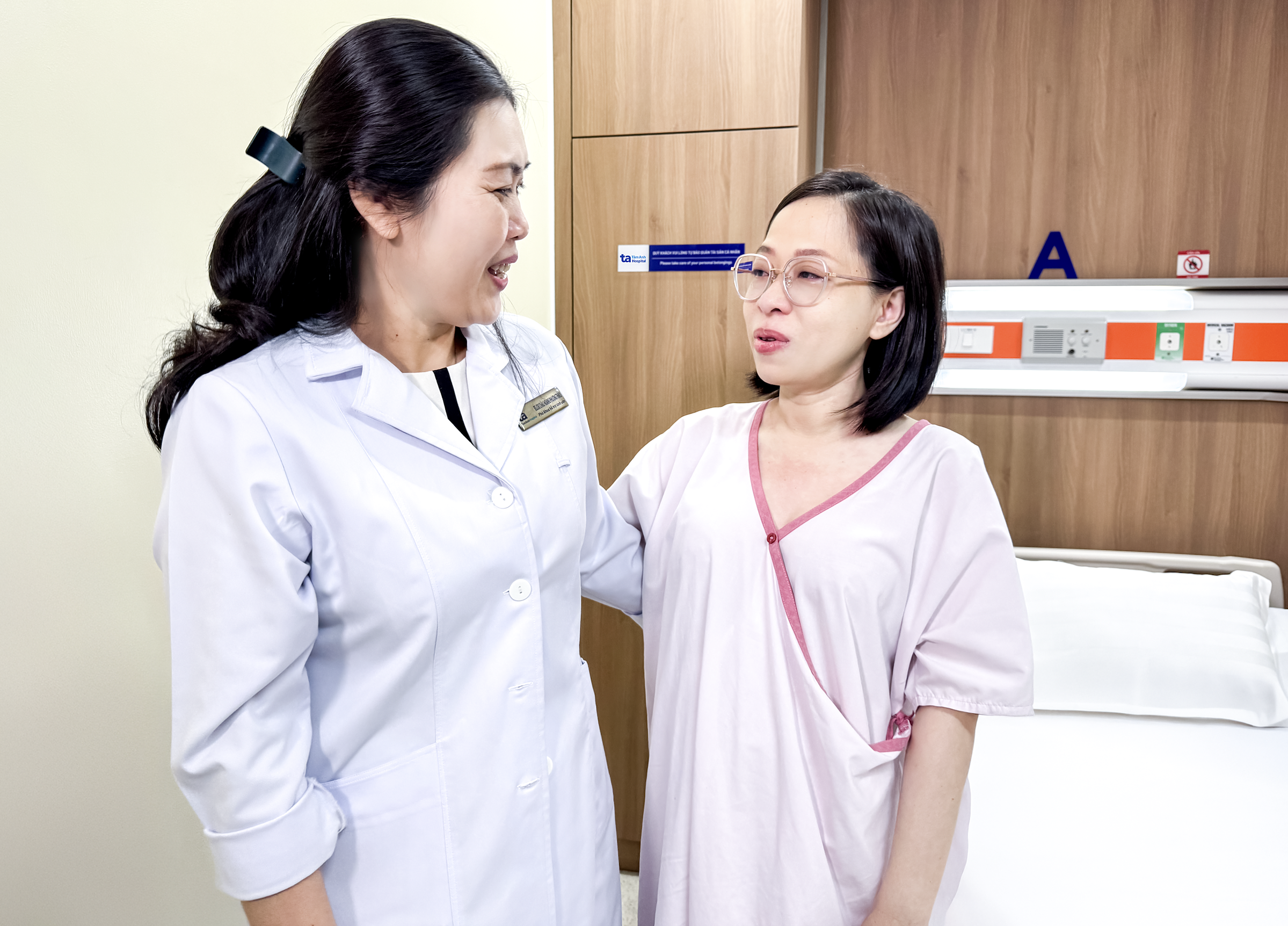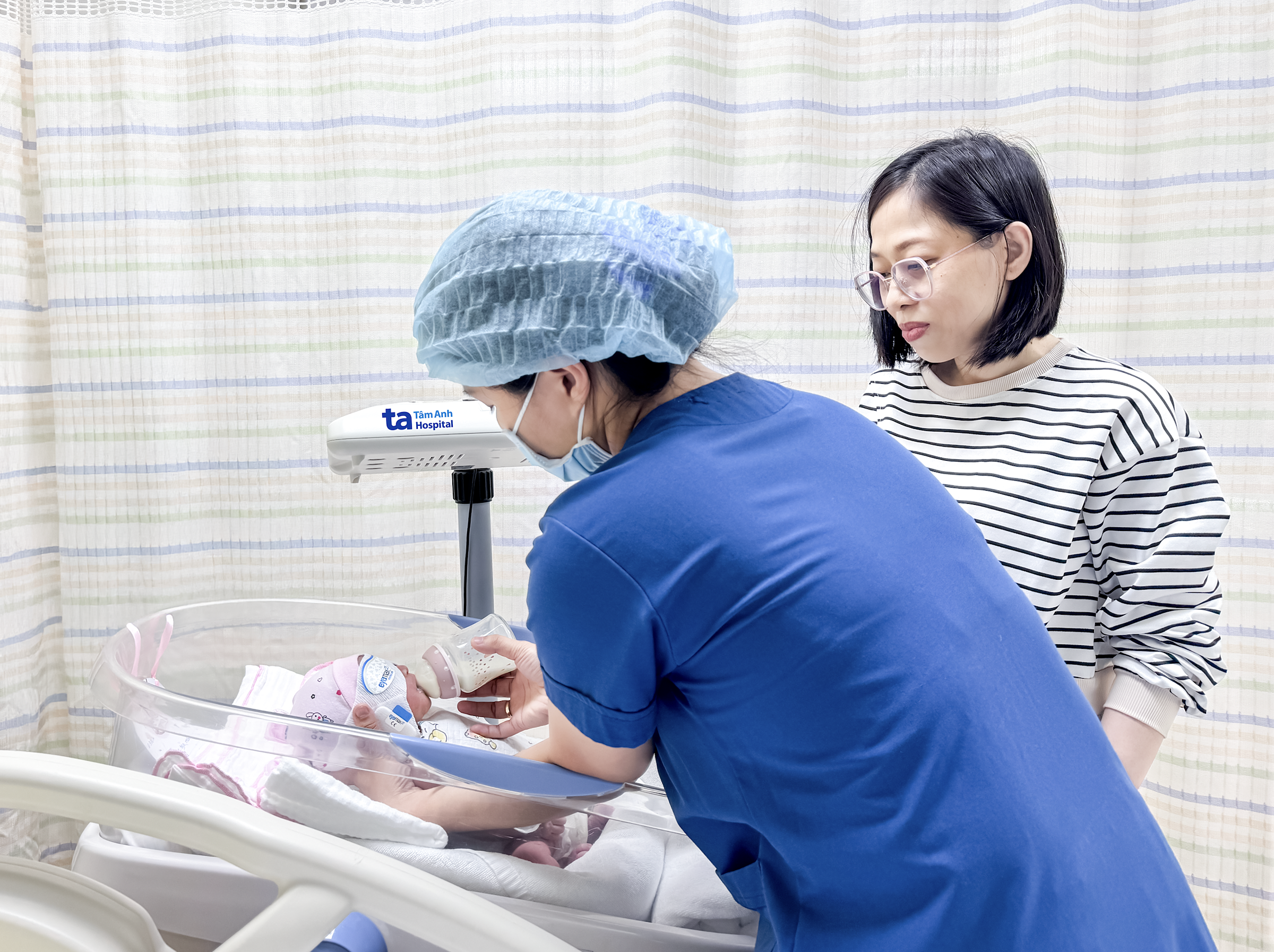"I finally have a child," Ngoc said, sharing that she had considered stopping treatment after doctors suggested using donor eggs for IVF.
 |
Doctor Chau Hoang Phuong Thao checks on Ngoc after she gave birth. Photo: Hoai Thuong |
Ngoc's husband lives in the US, and despite being married for six years, they had been unable to conceive. Ngoc had visited two hospitals in Ho Chi Minh City, where she was diagnosed with age-related infertility and diminished ovarian reserve. She was reluctant to use donor eggs, wanting a biological connection to her child.
Early last year, she visited the Fertility Support Center at Tam Anh General Hospital (IVF Tam Anh Ho Chi Minh City). Doctor Chau Hoang Phuong Thao, Deputy Director of the Center, said Ngoc's anti-Müllerian hormone (AMH) level was 0.56 ng/mL, indicating a nearly depleted ovarian reserve. An ultrasound revealed only a few follicles remaining in her ovaries. Ngoc also suffered from endometriosis, which further complicated natural conception.
"As long as there are eggs, there is hope," Dr. Thao said, advising the couple to proceed with multiple egg retrieval cycles. This approach is typically used for older women with low ovarian reserve to maximize the number of eggs collected, increasing the chances of successful embryo cultivation and pregnancy. The cost of egg retrieval is also only about one-third that of embryo retrieval.
Ngoc's husband provided a sperm sample for freezing before returning to the US. For six months, Ngoc traveled by bus from Dong Nai to IVF Tam Anh Ho Chi Minh City for checkups and ovarian stimulation injections. Doctors continuously monitored follicle development through ultrasounds.
During the first egg retrieval cycle, Ngoc produced only three eggs. Dr. Thao adjusted the medication protocol, guided Ngoc on stress management and rest, and recommended a suitable diet. Ngoc's husband provided constant support through calls and messages.
In the second stimulation and retrieval cycle, Ngoc produced a total of seven mature eggs. Embryologists thawed her husband's sperm, performed intracytoplasmic sperm injection (ICSI), and cultured the embryos in a time-lapse incubator, an environment optimized for embryo development. This resulted in four high-quality day-5 embryos.
Dr. Thao prescribed medication to suppress Ngoc's endometriosis and prepare her uterine lining for implantation. One embryo was transferred, resulting in a successful pregnancy. Ngoc gave birth to a healthy baby girl weighing almost 3 kg in mid-June.
 |
Tam Anh General Hospital staff guide Ngoc on caring for her daughter before discharge. Photo: Hoai Thuong |
IVF Tam Anh frequently treats older women with low ovarian reserve and long-term infertility. Their multiple egg and embryo retrieval cycles, combined with advanced embryo cultivation technology, have helped many women conceive healthy children, reducing the need for donor eggs. In 2024, the overall pregnancy rate after embryo transfer at IVF Tam Anh Ho Chi Minh City was over 78%, and nearly 85% for women under 28.
Hoai Thuong












